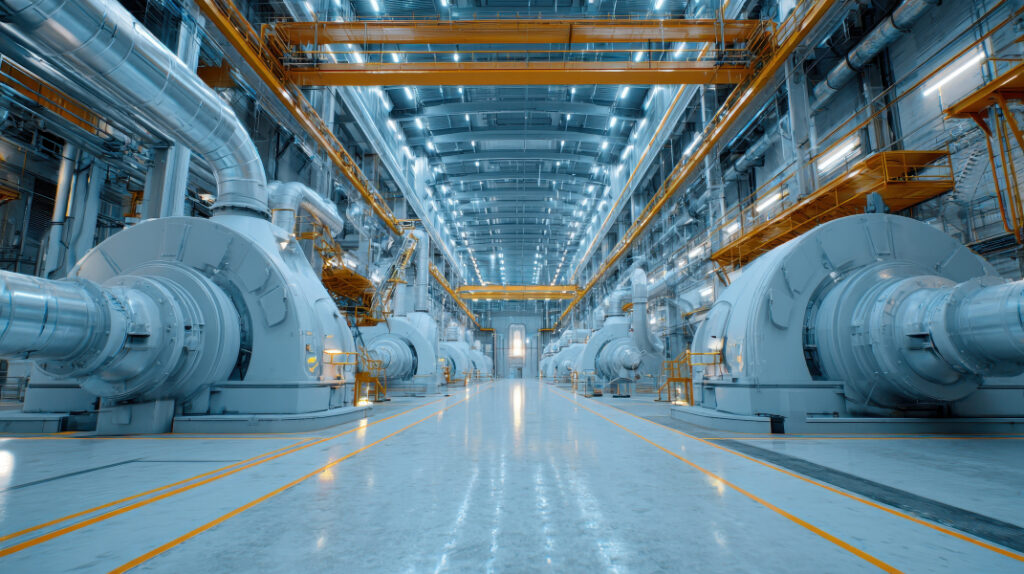Energy
Securing stable energy production and distribution is the basis of modern societies.
Automation systems are increasingly networked and must be designed with particular attention to
fail-safe and cyber security can be tested using robust simulation scenarios.
Due to extreme requirements for operational safety and reliability, as well as high maintenance costs, for example in the offshore sector, new methods such as automated software testing are being introduced in this area in particular.
WinMOD has established itself both for testing complex process control systems in power plants using fossil fuels (coal, gas, oil) and in the field of decentralised energy supply, based on series-produced power generation units with worldwide delivery.
Due to the ever-increasing demands on automation, corresponding applications are also increasingly being used in the field of renewable energies – for example, in hydropower (pumped storage plants, weir systems) and, especially since 2015, in wind energy (wind turbines, wind farms), where highly autonomous automation technologies are used.
Market-leading companies in wind turbine construction, which have been using WinMOD for many years, are increasingly going one step further and using simulations for both individual wind turbines and entire wind farms.

Further process automation solutions
Typical processes that carry out continuous or batch conversion of substances.
They are divided into main and auxiliary processes.
The aim is the economical and safe fabrication of basic materials or specialised products for all industrial sectors.
Similar production processes are used as in the chemical/pharmaceutical industry, but the core here is the use of microorganisms, cell cultures or enzymes for the fabrication of products.
In future, it will be used in various areas such as pharmaceuticals, green energy and green chemistry.
The focus is on processing, preserving and refining agricultural and raw materials. Typical processes include material- and energy-oriented product manufacturing, often combined with strict quality and hygiene standards.
All processes involved in the extraction and processing of raw materials (coal, ores, salts, earths) and their conversion into basic industrial products (steel, cement, gypsum, various other building materials). These processes are usually very energy-intensive.
Refrigeration machines for cooling and system components for cooling distribution and utilisation are a key factor in both industrial plants and building automation.
Energy generation plants based on fossil fuels (coal, gas, oil), nuclear power plants and increasingly promising variants based on environmentally friendly resources such as hydropower, solar, wind, tidal, etc., as well as energy distribution plants, are becoming increasingly highly automated with extreme demands on their availability.
Water supply, from extraction, treatment, storage and distribution, as well as wastewater disposal, including transport, storage and treatment for environmentally sound disposal, are fundamentally important for a modern society and its industry.
Technical installations in road transport (general traffic control, tunnels, bridges), rail transport (signalling and switch systems, signal boxes, etc.) and waterway transport (locks, weirs, ship lifts)
All areas of technical building equipment such as ventilation, heating, air conditioning, security and fire protection that aim to improve energy efficiency, comfort, safety and cost-effectiveness in buildings.
General shipbuilding for civil, technical and military use, offshore installations as bases for wind farms, gas and oil production facilities, and underwater stations.